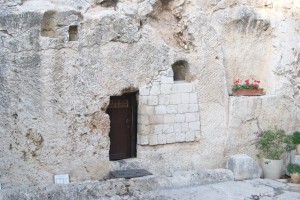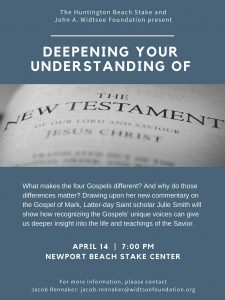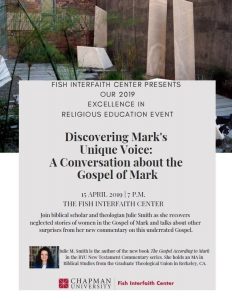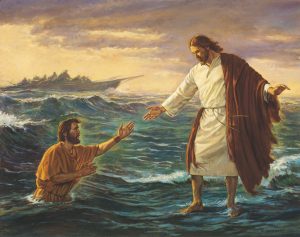This is excerpted from The Testimony of Luke by S. Kent Brown. It includes the New Rendition, Analysis, and Notes on each verse.
New Rendition
11 And he said, “A certain man had two sons. 12 And the younger of them said to his father, ‘Father, give to me that portion of the estate which falls to me.’ And he divided his property between them. 13 And after a few days, when the young man had gathered everything, he went abroad into a far land, and there he squandered his goods by living dissolutely. 14 When he had exhausted everything, a serious famine arose across that land, and he began to be in short supply. 15 And he went and joined with one of the citizens in that land, and he sent him into his fields to tend swine. 16 And he desired to eat his fill from the carob pods which the pigs were eating. And no one gave him anything.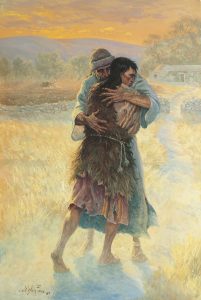
17 “But when he came to his senses, he said, ‘How many of my father’s hired men have more than enough bread, but I am perishing here from hunger. 18 I will rise up and go to my father and say to him, Father, I have sinned against heaven and before you. 19 I am no longer worthy to be called your son; make me as one of your hired men.’ 20 And he rose up and went to his father. But while he was still far off, his father saw him and felt compassion and, running, fell upon his neck and kissed him. 21 And the son said to him, ‘Father, I have sinned against heaven and before you; I am no longer worthy to be called your son.’ 22 But the father said to his slaves, ‘Quickly, bring out the best robe and clothe him, and put a ring on his hand and shoes on his feet. 23 And bring the fattened calf, slaughter it, and we will rejoice while eating it, 24 because this, my son, was dead and has come alive again, he was lost and was found.’ And they began to celebrate. Continue reading


